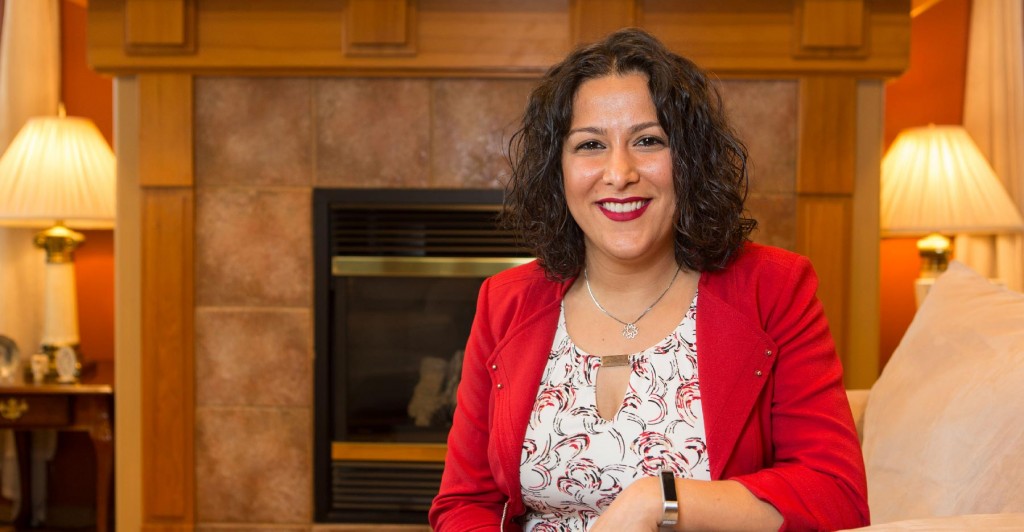Page 102 • (1,053 results in 0.114 seconds)
-
learning. Prerequisite: Admission to the MA/Cert program or consent of instructor. (2) EPSY 587 : Special Topics in Educational Psychology To provide graduate students with new, one-time and developing courses not yet available in the regular curriculum. The title will be listed on the student term-based record as ST: followed by the specific title designated by the academic unit. (1 to 4) EPSY 588 : Special Topics in Educational Psychology To provide graduate students with new, one-time and developing
-

support PLU students visit plu.edu/advancement.More from PLU Read Previous The People’s Gathering Conference at PLU Set for April 22 Read Next PLU professors and students dive deep into the psychology of the pandemic COMMENTS*Note: All comments are moderated If the comments don't appear for you, you might have ad blocker enabled or are currently browsing in a "private" window. LATEST POSTS Three students share how scholarships support them in their pursuit to make the world better than how they found
-

yourself up,’ ” says Stacia Vierra ’12, a social worker for MultiCare Tacoma Family Medicine who previously served as the director of a shelter for survivors of domestic violence. Vierra first experienced a calling for social work and advocacy while working at PLU’s Center for Gender Equity. Psychology classes taught her to stand up against injustice and oppression, center inclusivity, and amplify the voices of historically marginalized community members. Since earning a master of social work degree in
-
concept that at the time was unheard of. “What we take for granted as public education, which is supported through taxes, is a Luther invention,” he said. But Torvend argues perhaps the most important Lutheran innovation in education was allowing every subject to exist independently. “That meant that professors in religion could not tell professors in geology or biology how to go about the study of their discipline; it meant that professors in psychology could not tell professors in English how to go
-

,” she said. “I understand a lot of things they have experienced.” Sabet-Kazilas says gaining graduate-level admission to PLU represented years of hard work and resilience. She graduated in 2008 with a degree in psychology from the Baha’i Institute for Higher Education, which was founded in 1987 in response to the Iranian government’s campaign to block Baha’i followers from pursuing higher education. She earned a bachelor’s degree despite a lifetime of intimidation in Iranian primary schools. “With
-

background. Her mother never made her or her siblings feel like they went without, and inspired them to speak success into existence. That upbringing taught Rojas Apodaca to take ownership of her future, and informs her continued path toward law school. “She was always very motivating, and I think that transcended into my own motivation,” Rojas Apodaca said. “She’s a really good role model for me.” Cristina Flores ’19, who is majoring in psychology with a minor in Hispanic studies, says her first
-
began supporting schools through taxes, a concept that at the time was unheard of. “What we take for granted as public education, which is supported through taxes, is a Luther invention,” he said. But Torvend argues perhaps the most important Lutheran innovation in education was allowing every subject to exist independently. “That meant that professors in religion could not tell professors in geology or biology how to go about the study of their discipline; it meant that professors in psychology
-
Procedures Against Women in Auschwitz: An Unspoken Narrative” Who: Peggy J. Kleinplatz, Ph.D. Bio: Dr. Peggy J. Kleinplatz is Professor of Medicine, Clinical Professor of Psychology and Director of Sex and Couples Therapy Training at the University of Ottawa. She is a clinical psychologist, Board Certified in Sex Education and as a Diplomate and Supervisor of Sex Therapy. In 2015, Kleinplatz received the American Association of Sexuality Educators, Counsellors and Therapists’ Professional Standard of
-
students’ working relationship with faculty members helps students become entrenched in their studies. Through student-faculty research, students incorporate their own experiences with academia in a way that Lewis says improves critical thinking, writing and understanding of students’ subjects of interest. Cynthia Waite '20 Waite’s project, a study of faculty-student mentoring, caught the spirit of the day. Psychology Professor Wendelyn Shore, an expert on the topic, was Waite’s mentor, and was
-
purified human squalene synthase for our aptamer studies. 4:00 pm - Are You “Paraben Free”? Detection and Measurement of Parabens Used as Preservatives in Consumer Products Allyson Swanstrom, Senior Capstone Seminar Parabens, esters of para-hydroxybenzoic acid, and their biological effects have been a topic of concern in recent media reports and product marketing campaigns. Structurally, parabens resemble estrogen, which raises the worry of how these chemicals react with the aspects of the endocrine
Do you have any feedback for us? If so, feel free to use our Feedback Form.


